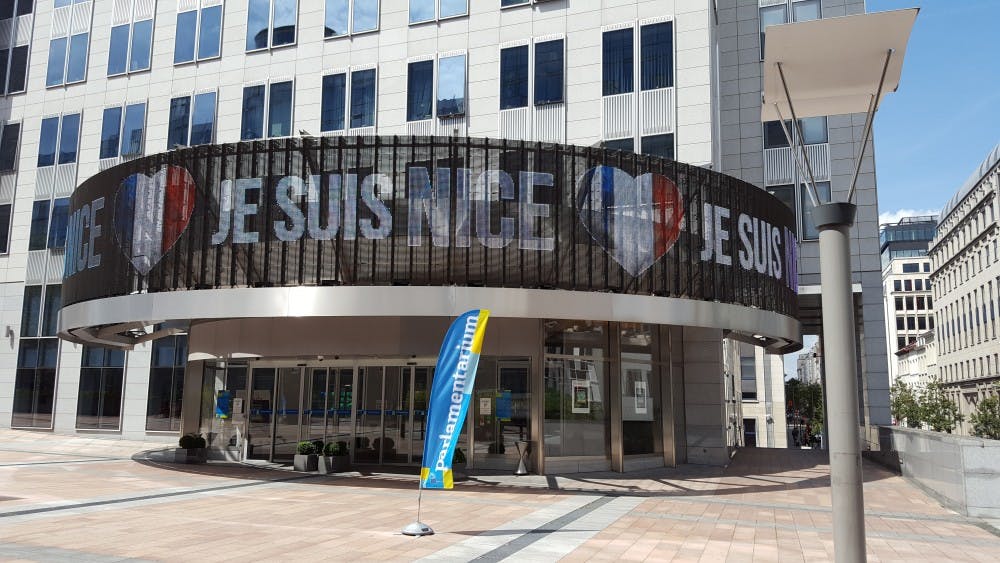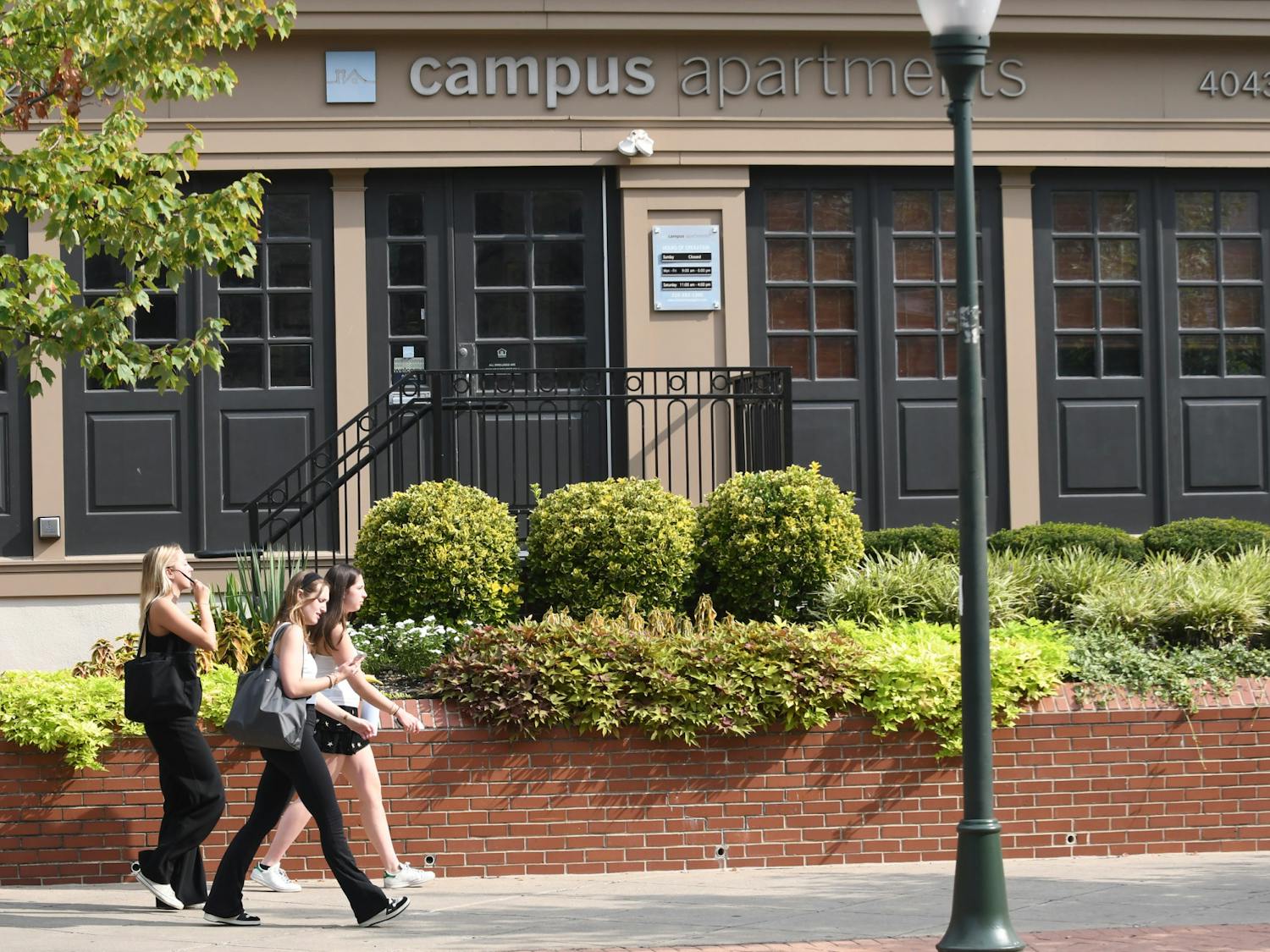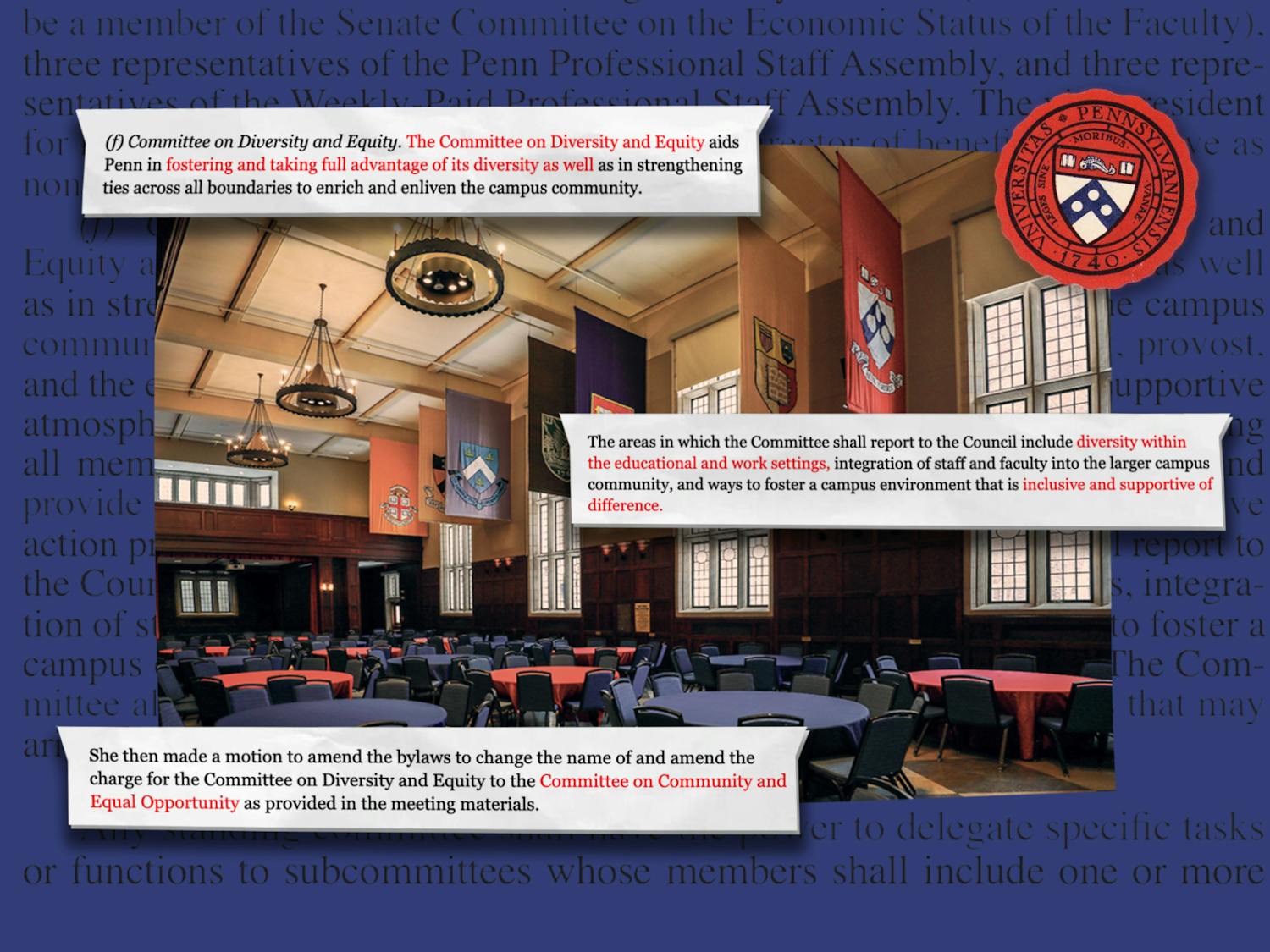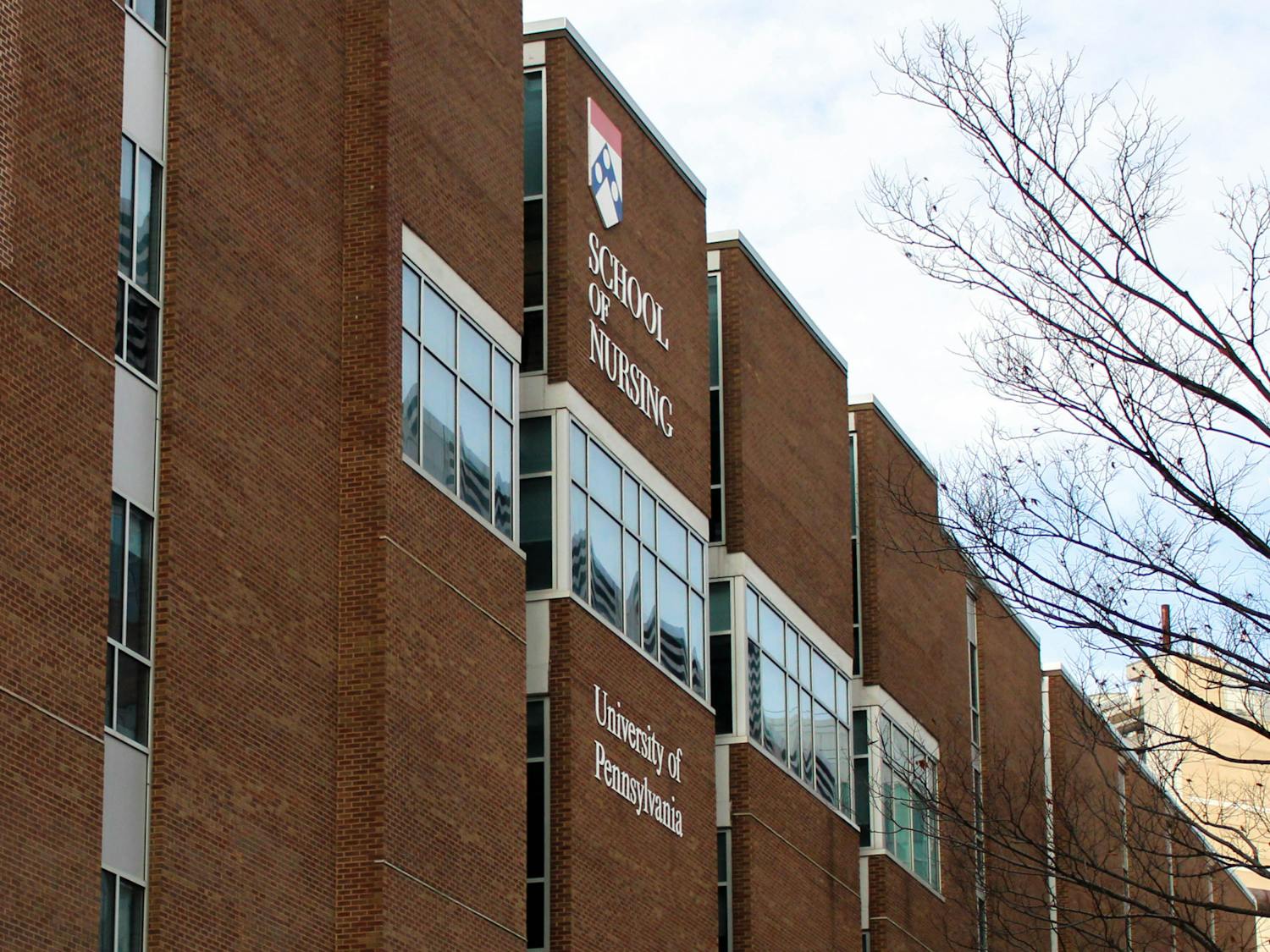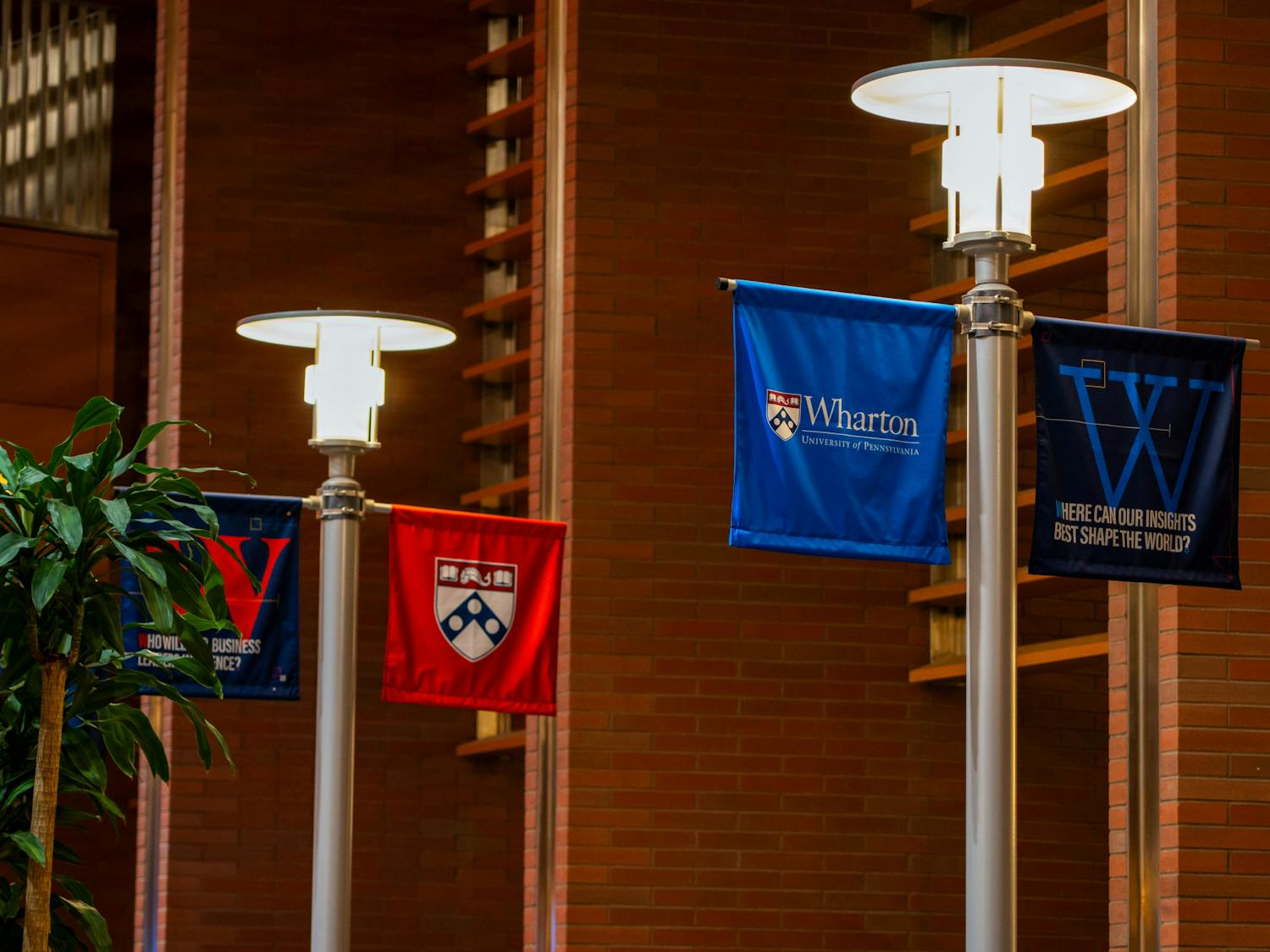This summer had no shortage of newsworthy world events, such as the British exit from the European Union, the 2016 Summer Olympics in Rio de Janeiro and the political uprising in Turkey. The Daily Pennsylvanian sat down with Penn students who were able to experience these events firsthand to talk about their adventures.
The Daily Pennsylvanian: Why were you abroad this summer?
College junior Olivia Rifai: I used to live in London and visit friends and family every year.
DP: What was the atmosphere like surrounding Brexit? Did you feel influenced either way?
OR: I actually arrived in London on the day of the vote so on the tube from Heathrow basically everyone — so many different kinds of people — had open the same newspaper with the flags on it in anticipation. There was also torrential rain and loads of trains were cancelled so it was all really intense. Lots of people stayed up all night to see the result and we really just couldn’t believe it. My social circle there consists of mostly younger, more liberal, cosmopolitan university students so we were all really for [remaining in the EU].
DP: Did you experience a lot of the tension or protests?
OR: I had seen a few Facebook events about marches in Westminster and I know some people who went to those but most of what I actually witnessed was more subtle. For instance, my friend’s mother was avoiding the calls of an older and more conservative neighbor whom she knew voted Leave. One time at a club, my friends and I were talking to this one guy who seemed really cool until he said “I really think Brexit is necessary for this country to reach its full potential” and then it got very awkward. You’d often see certain types of people in the street or a restaurant and someone would go “I bet they voted Leave.” It was all presented in a joking manner but the feelings behind it were very real.
----------
DP: How did you end up in Rio?
College senior Katie Harlow: I wanted to work for the Olympics because I worked at a sports agency a few years ago and wanted to continue that path. I have knowledge in sports; I grew up competing in like soccer, ski racing, rowing, swimming, which are all big sports at the games so I had a natural passion for Olympic sports. I wanted to be in Rio to be on-site and get hands on experience around the athletic talent and learn how such a massively unique production is executed.
DP: What exactly was your position there?
KH: I worked as a runner for NBC Sports, which brought me to many different venues in Olympic Park and exposed me to everything from the executive producers’ decisions to all the marketing and visual efforts that are necessary to have a successful games both on television and in the city of Rio.
DP: How did the Olympics alter the way you experienced the city?
KH: I’d never been to South America but have friends on my rowing team who’d competed there so I had a preconceived notion of the city but I was completely blown away by the friendliness of the local people and the accommodations they made throughout the entire six weeks I was there. We got to visit Christ the Redeemer and other sites which completed my image of the city as a place of hope and full of energy, which was really inspiring.
DP: What was your favorite part about being in Rio during the Olympics?
KH: This sounds cliché, but I genuinely loved being part of such a cohesive NBC team — spending time with so many inspiring and creative people that helped me learn about myself was beyond rewarding.
DP: Least favorite?
KH: Not being able to eat American ice cream. Just kidding — I cried when the U.S. Women’s Soccer Team (my favorite team) lost to Sweden in penalty kicks and was eliminated.
DP: Best memory?
KH: One of the most impactful memories for me was being a few rows over from Phelps’ family during his 200 IM final when he won gold. The energy and passion I felt in the aquatic center that night is indescribable — those moments where history was made and I got to see athletes in the exact moment that their dream [was] fulfilled and they realized they’d won a medal were the moments I’ll never forget.
----------
DP: Why were you abroad?
Engineering sophomore Anastasia Efremkina: I was studying abroad in the Alps through Tufts [University] taking two courses. One was in dance and one was on the history of the [Gallic] Empire.
DP: How aware were you of tensions in the country?
NE: I was definitely aware of it. I was more careful about my surroundings than I had been when I had previously travelled in Europe. I knew I should stay away from crowds and wanted to remain cognizant about things that were going on. There were “fan zones” for the Euro Cup [soccer tournament] where there were big arenas for people to come together to watch. I decided not to attend because I was worried about large crowds.
I was in JFK [airport] coming back from France in passport control when a hoax shooting occurred. The police yelled for us to get to the ground. We were on the floor and everyone was screaming and yelling. After a few minutes the police yelled run and we ran to the tarmac, I was holding my friend to make sure we didn’t get separated and hid behind planes for a while. When the chaos died down and we found out it was all a hoax I helped people find their families.
DP: How has your experience changed the way you feel about travel?
NE: Given the last couple of months I’m definitely more cautious in airports.
----------
DP: Why were you abroad this summer?
College junior Leo Page-Blau: I was in Ankara, Turkey doing an internship at a youth exchange NGO that I have worked with in the States. I’m hoping in the future to be able to work at an embassy.
DP: What was your experience regarding the coup that occurred on July 15?
LP: I had just gotten home from work, actually, and didn’t actually realize that anything had happened. It was a work supervisor reaching out to me to make sure that I was all right that alerted me to it happening. The Penn officials did reach out to me to make sure I had a “shelter in place.”
DP: What was the atmosphere like following the coup? More strained?
LP: Honestly it really was eerie that I did not feel more changed. I went out the next day and got a Turkish coffee with my breakfast. Most of the violence occurred farther into the city from where my host family lived. Many of my co-workers were worried.
DP: How has your perception of studying and living abroad been altered?
LP: I still plan on studying abroad in Istanbul, so I would say not much.


